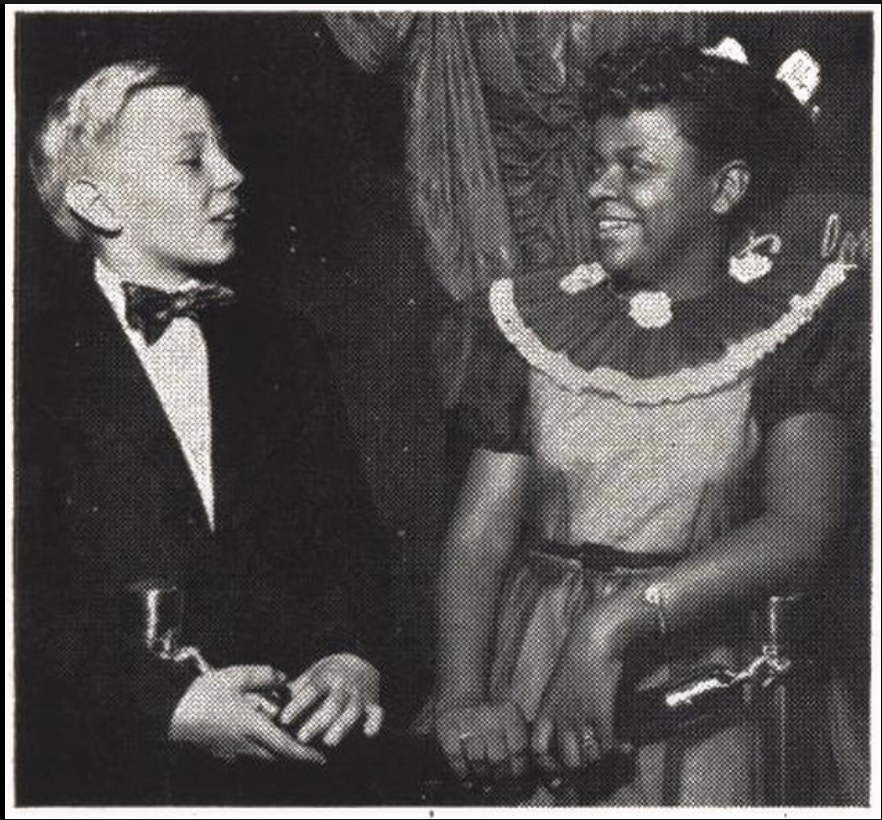A 12-year-old girl named Gloria Lockerman is the reason you learned the word “antidisestablishmentarianism” when you were a kid.
Remember how you and your friends would toss it around, touting it as one of the longest words—if not the longest—in the English language?
There are of course many longer words, many of them scientific or medical terms, like “pseudopseudohypoparathyroidism,” a thyroid condition that results in physical differences.
And most longer words beyond that are intentionally absurd, like “floccinaucinihilipilification,” a word whose Latin components sort of mean “the perception of something as worthless” thanks to this sentence by 15th-16th century grammarian William Lily:
“Flócci of a lock of wool, náuci of a nut-shell, níhili of nóthing, píli of a hair, ássis of a pénny, hújus of this, terúncii of a fárthing, addúntur are ádded, peculiáritèr pecúliarly or véry próperly vérbis to verbs æstimándi of esteéming.”
Or there’s “hippopotomonstrosesquipedaliophobia,” an intentionally cheeky word using classical elements to make an absurdly long word meaning the fear of long words.
And of course there’s James Joyce’s linguistic monstrosities from Finnegan’s Wake, like this one is meant to put into a word the sound of the thunderclap that accompanied the fall of Adam and Eve: “bababadalgharaghtakamminarronnkonnbronntonnerronntuonnthunntrovarrhounawnskawntoohoohoordenenthurnuk.”
But “antidisestablishmentarianism” is unique for being a long word with a practical, unfanciful and nonscientific use. It dates back to 19th-century England. It’s a reaction to 18th-century disestablishmentarianism, or the movement to have churches remove (disestablish) themselves from the Church of England (the “establishment,” so to speak) and no longer allow it to continue as the default, official Church of the United Kingdom. This was in many cases due to abuses of power and absurdly inflated salaries for religious officials. Slap an “anti-” on “disestablishmentarianism” to describe the position that churches should not be disestablished and should continue to receive government funding and be subject to its influence. Proponents of antidisestablishmentarianism believed that disestablished churches might descend into partisanship and ethnic nationalism.
The word was not well known outside of these historical contexts and the works of the theologians and historians who studied them…
… until 1955.
In an episode of the game show The $64,000 Question, 12-year-old Gloria Lockerman correctly spelled the word “disestablishmentarianism,” winning $8,000—a sizeable chunk of change that today would total just over $92,000. She became a sensation and the word became known to a wide audience.
She would return for The $64,000 Challenge (same show, different nights) and correctly spell the sentence “The belligerent astigmatic anthropologist annihilated innumerable chrysanthemums,” winning another sizeable sum after tying with a boy named Andrew Douglass across several episodes. Watch the duo in action here.

Gloria could have once again returned and gambled her winnings to take a shot at more, but taking her grandmother’s advice, she took the money she had already won and put most of it toward a college fund. In Jet magazine she was quoted saying: “I’d rather be Gloria the undefeated champion than Gloria the girl who lost.”

One of the reasons Gloria gained such wide notoriety during her run on the show was because she was Black. Her show of spelling aptitude defied the expectations of many viewers who held biases toward and believed stereotypes about the intelligence of Black people. And indeed, news articles about her from that time definitely emphasized her race.
As a result of her widely viewed performance, everyone came to know the word she had spelled on that first episode, and she herself captivated many hearts and minds: She was honored by the NAACP; she met celebrities; she was invited to parades and festivals; the National Pickle Packers association reportedly sent her 16,000 pickles. She appeared on the popular variety show The Martha Raye Show (which famously drew complaints from bigoted viewers, and is sometimes connected with the show’s cancellation due to the backlash).

Gloria’s spelling of “antidisestablishmentarianism” was even referenced on The Honeymooners. She was by some outlets dubbed the “spelling queen of the airwaves.”
All of this hype around Gloria resulted in the previously obscure word “antidisestablishmentarianism” becoming one that everyone had heard of, even if they weren’t well versed in Anglican theological politics of the the 19th century. And that’s thanks to Gloria.






